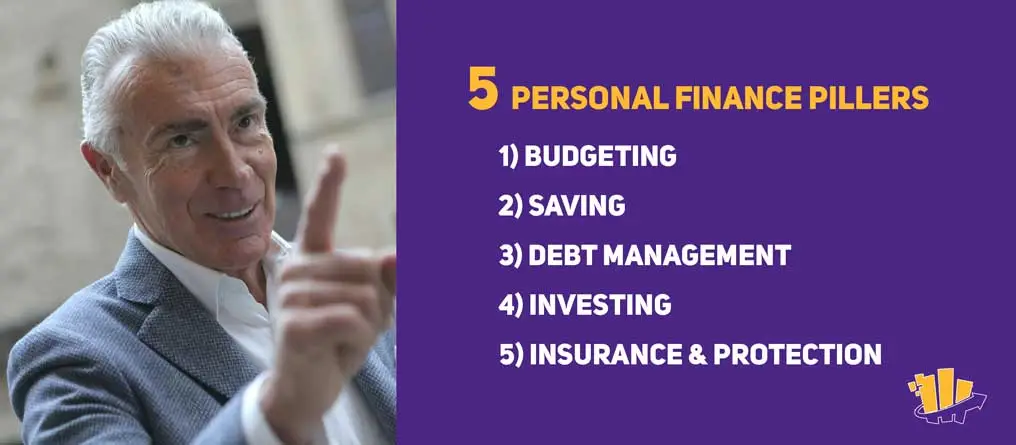Personal Finance 101
The Ultimate Guide to Managing Your Money Smartly
Managing money isn’t taught in school — yet it’s one of the most crucial life skills you need to build the life you want.
If you’ve ever felt a knot in your stomach when checking your bank balance, or if the terms budgeting, investing, and debt feel like a foreign language, you’re not alone. The world of personal finance can seem overwhelming, especially when you’re just starting out as a student, young professional, or entrepreneur. But here’s the secret: getting control of your money isn’t about earning a huge salary; it’s about mastering a few smart financial habits.
This isn’t a complex textbook; it’s a friendly, actionable personal finance guide designed specifically for beginners. We’ll break down the jargon, share practical money management tips, and show you exactly how to manage money so it stops stressing you out and starts working for you.

Our Promise: By the end of this guide, you’ll understand how to take control of your money, confidently start building wealth, and ultimately achieve financial peace of mind. Let’s get started on your journey to financial freedom!
What Is Personal Finance?
In the simplest terms, personal finance is everything that involves your money. It’s the strategic planning and management of your individual financial activities. Think of it as your personal treasury department.

It covers five key components:
Earning: Where your money comes from (salary, side hustle, business income).
Spending: How you allocate money to cover your expenses (rent, food, fun).
Saving: Setting aside money for future goals (a down payment, a trip, or retirement).
Investing: Making your money grow over time (stocks, real estate, mutual funds).
Protecting: Using insurance and other tools to guard your money and assets (health, life, and car insurance).
Understanding this cycle is the first step toward smart financial habits.
A Simple Example

Imagine you have a $2,000 monthly income.
Earning: Your $2,000 paycheck just landed.
Spending: You allocate $1,500 for rent, utilities, and groceries.
Saving: You immediately transfer $300 to a separate savings account for your emergency fund.
Investing: You automatically put $200 into an index fund.
Protecting: You pay $50 for health insurance.
By actively deciding where every dollar goes, you’ve gone from passively spending your money to actively managing it. This is the essence of personal finance planning.
Why Personal Finance Matters
If you’re asking, “Why should I care about money management tips right now?” the answer is simple: control, peace, and freedom.
Stress Reduction and Peace of Mind
Financial worries are one of the biggest sources of stress for young adults. When you start to implement a budgeting for beginners plan and build a safety net (an emergency fund), that stress melts away. You replace anxiety with certainty, knowing you’re prepared for unexpected bills or life changes.
The Path to Financial Independence
We live in a time of rising living costs and inflation. Relying solely on a monthly paycheck can feel like being on a treadmill. The ultimate goal of learning how to manage money is financial independence — the state where your investments generate enough passive income to cover your living expenses. This gives you the freedom to choose to work, travel, volunteer, or start a business, rather than being forced to work. This foundational knowledge is the best personal finance advice you’ll ever get.

The 5 Pillars of Personal Finance
Mastering these five areas is how you build long-term wealth planning. They represent the complete lifecycle of your money.

1) Budgeting: Your Spending Blueprint
Budgeting is not about restricting yourself; it’s about giving every dollar a job. It’s the roadmap that shows you where your money is going before it leaves your hands. A budget helps you stop living paycheck to paycheck.
How to Create a Simple Monthly Budget: The 50/30/20 Rule
This is a favorite personal finance tip for beginners because it’s simple:
- 50% Needs: Essential expenses (rent, food, utilities, minimum loan payments).
- 30% Wants: Non-essential spending (dining out, entertainment, hobbies, new clothes).
- 20% Savings & Debt: Financial priorities (how to save money, investing, and extra debt payments).
Tools to Help: Use a simple spreadsheet or free apps like Mint or YNAB (You Need A Budget) to track your actual spending against your plan.
2) Saving: Securing Your Future
Saving early is crucial because of the magic of compounding (which we’ll cover in investing). Saving has two primary goals: short-term fun and long-term safety.
Building an Emergency Fund
This is a pool of readily accessible cash (in a high-yield savings account) to cover unexpected expenses like a medical bill or job loss. The rule of thumb: save 3–6 months’ worth of living expenses. This is the non-negotiable foundation of all personal finance planning.
Setting SMART Goals
Break down your savings into specific, measurable, achievable, relevant, and time-bound goals (e.g., “$5,000 for a car down payment in 18 months”).
3) Debt Management: Taming the Monster
Not all debt is bad. Good debt (like a mortgage or student loan) can help you acquire assets or increase your earning potential. Bad debt (like high-interest credit card balances) only makes the lender richer.
How to Pay Off Credit Cards Faster
1. Debt Snowball: Pay the smallest debt first to gain momentum (psychological win!).
2. Debt Avalanche: Pay the highest-interest debt first to save the most money (mathematical win!).
Choose the method that works best for your personality and stick to your debt management tips.
4) Investing: Making Your Money Work
Investing is the process of putting money into assets with the expectation of generating future income or profit. The concept of building wealth relies heavily on this pillar.
The Power of Compound Interest
Compound interest is when you earn interest not only on your initial investment but also on the interest you’ve already earned. Albert Einstein reportedly called it “the eighth wonder of the world.” The key to maximizing it is to start as early as possible—time is your greatest asset!
Where Beginners Can Start
Forget the risky stock picks. Beginners should focus on low-cost, diversified funds:
- Mutual Funds & ETFs (Exchange-Traded Funds): These hold a basket of many stocks and bonds, making them instantly diversified and less risky than holding a single stock.
- Index Funds: A type of mutual fund or ETF that tracks a major market index, like the S&P 500. This is the simplest and often the most profitable strategy for beginners on how to invest money wisely.
5) Insurance & Protection: Your Financial Safety Net
Insurance is a foundational step in your personal finance guide that often gets overlooked. It’s the protective layer that prevents a single catastrophe from wiping out all your budgeting and saving work.
- Health Insurance: Protects you from devastating medical bills.
- Life Insurance: Provides for loved ones if you pass away (especially if you have dependents).
- Asset Protection: Home, renters’, and auto insurance protect your valuable physical property.
Smart Financial Habits to Build
Consistency is the secret ingredient to personal finance. These small changes have a massive impact over time.
Track Your Spending: For one month, write down every single penny you spend. This exercise is incredibly eye-opening.
Automate Your Savings: Treat your savings and investments like bills. Set up automatic transfers to move money to your savings and investment accounts the day you get paid. You can’t spend what you don’t see!
Review Finances Monthly: Set aside an hour once a month to check your budget, pay bills, and review your investment performance.
Avoid Impulse Buying: Use the “30-Day Rule” for non-essential purchases: if you still want it after 30 days, you can buy it.
Keep Learning: Financial markets and products are always evolving. Read books, listen to reputable finance podcasts, and stay engaged with your money.

Common Personal Finance Mistakes

Even with good intentions, people make mistakes that derail their long-term wealth planning. Awareness is the first step to avoidance!
Living Paycheck to Paycheck: This traps you in a cycle of stress. The solution is to create a buffer —a small emergency fund — that breaks the cycle.
Ignoring Your Credit Score: Your credit score improvement is vital for getting lower interest rates on mortgages, car loans, and even securing a rental apartment.
Not having a Plan for Emergencies: This forces you to use high-interest debt when life inevitably happens.
Falling into Lifestyle Inflation: As your income grows, your spending grows to match it. Fight the urge to upgrade every aspect of your life immediately. Save and invest the raise instead.
How to Start Today — “Your First Steps”
Stop procrastinating. The best time to start was yesterday. The next best time is right now. Commit to these simple actions this week:
Create Your First Simple Budget: Open a spreadsheet and write down your income and your 50/30/20 breakdown based on last month’s spending.
Save Your First $100 This Week: Find a non-essential expense you can cut (like delivery food) and transfer that money to a savings account immediately.
Check Your Bank Statements: Go through your last three months of bank and credit card statements to see where your money actually went. This is a crucial step in building smart financial habits.
Start here: Take the 7-Day Smart Money Challenge
Congratulations! By reading this far, you’ve taken the most important step: education.

Remember, personal finance is not about deprivation; it’s about control over your present and freedom in your future. It gives you the peace of mind to live your life on your own terms.
Achieving financial independence isn’t a race; it’s a marathon based on simple, consistent action. Even small financial wins today lead to financial freedom tomorrow. Start small, be consistent, and watch your building wealth plan take shape.
Explore more saving and investing guides to continue your journey. Click To Read More